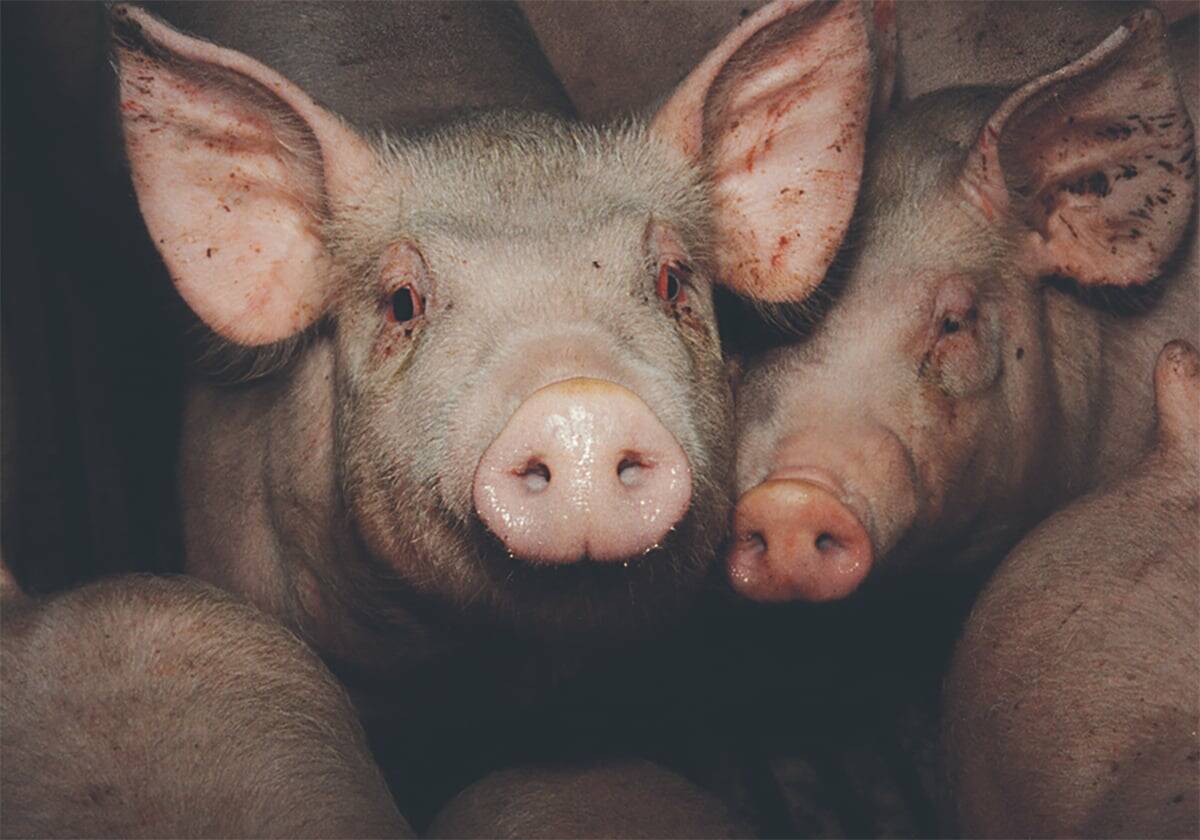The heated debate over the future of the Canadian Wheat Board rose a few more degrees last month with the Grain Growers of Canada (GGC) and the Western Grain Elevators Association (WGEA) accusing the CWB’s directors of not trying hard enough.
GGC executive director Richard Phillips lambasted CWB chair Allen Oberg for taking a defeatist attitude towards the board’s future in an open market.
“If the left-wing directors on that board don’t want to try (to convert the CWB to an open market) then we’re serious, get out of the way and let the other guys try, and if they fail then they should wear it,” Phillips said in an interview June 23.
Read Also

Scientists discover cause of pig ear necrosis
After years of research, a University of Saskatchewan research team has discovered new information about pig ear necrosis and how to control it.
Phillips was alluding to a speech Oberg gave at the Farm Progress Show in Regina June 16 where he said the CWB cannot exist without its single-desk marketing authority. The federal government says it will end the CWB’s monopoly on wheat and barley on Aug. 1, 2012.
Oberg also said in his speech the CWB is examining options with one measuring stick: “Will it add sufficient additional value for farmers? Will that value be over and above what would already exist in an open market? Because if the new model cannot provide that additional value, why bother?”
There are thousands of reasons to bother, GGC president Stephen Vandervalk said in a news release.
“They are called the farmers of Western Canada,” he said.
Oberg said the CWB’s board is simply being honest about what it can and cannot do in an open market.
Phillips said the CWB’s board should turn CEO Ian White loose and instruct staff to work on options. Saying the CWB can’t operate in an open market will cause staff to leave and scare off customers.
“The day after Oberg’s speech I got a call from a major, major customer from overseas… asking ‘who would we be buying grain from going forward because it appears it’s not going to be the wheat board based on Oberg’s comments,’” he said.
Share offering?
The CWB could be turned into farmer-owned shareholder company or co-operative by issuing shares based on the tonnes marketed through the CWB in previous years, Phillips said. But do all farmers want to be CWB owners?
“If there was share offering what would they actually be buying?” Oberg said. “The wheat board’s assets are limited. It doesn’t have a capital base. Until it’s known what concessions, if any, the federal government would be willing to offer it would be hard to even decide if that type of structure would even be possible.”
Some of those details might be in the government’s legislation promised for this fall.
“Until we get indications from the minister as to what he’d be willing to provide or what this new model might look like, it’s all just speculation,” he said.
If the CWB must become a grain company it will have to either buy handling facilities or use its competitors. To do that it needs capital or regulated access to elevators and terminals, Oberg said.
The Western Grain Elevator Association (WGEA) doesn’t want the CWB to get special treatment. But Phillips said the GGC is willing to ask the government for some short-term concessions, such as guaranteeing the CWB’s borrowings, so it can get established.
“Ironically what you see is the open market people wanting to go to bat for the wheat board with the government,” he said.
The WGEA also took exception to Oberg’s remarks.
“The insinuation is that grain handling companies would not be interested in continuing to partner with the Canadian Wheat Board as suppliers of handling services,” WGEA executive director Wade Sobkowich said in a news release.
“Grain companies would certainly be prepared to negotiate handling or marketing agreements with the CWB on standard commercial terms.”
The CWB could contract grain companies to move grain on its behalf, but Oberg said when the system is at capacity grain companies will give priority to shipping their own product first.
———
“Ironicallywhatyou seeistheopenmarket peoplewantingtogoto batforthewheatboard withthegovernment.”
Richard Phillips GGC














